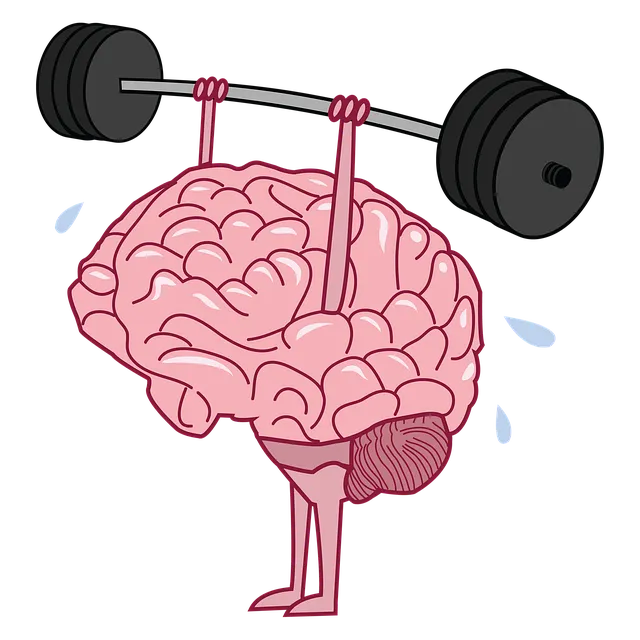The Kaiser Permanente behavioral health center in Broomfield offers holistic mental health services focusing on emotion regulation through evidence-based programs like Compassion Cultivation Practices (CCP). Their interactive workshops and therapeutic sessions teach stress management techniques, promoting adaptability, self-compassion, and emotional intelligence. Emphasizing mindfulness and relaxation techniques like deep breathing and progressive muscle relaxation, the center fosters tranquility and control, helping professionals manage burnout. They tailor approaches to individual needs, incorporating risk assessment and self-awareness exercises to empower clients with practical strategies for emotional well-being.
Emotion regulation techniques are essential tools for managing stress, improving mental well-being, and enhancing overall quality of life. At Kaiser Permanente Behavioral Health Center Broomfield, we delve into innovative strategies to unlock emotional intelligence. This article explores the transformative power of mindfulness and relaxation practices, along with practical, personalized techniques tailored to individual needs. By understanding emotion regulation, you can navigate life’s challenges with greater resilience and grace.
- Understanding Emotion Regulation: Unlocking Emotional Intelligence at Kaiser Permanente Behavioral Health Center Broomfield
- Teaching Techniques: Practical Strategies for Effective Emotion Management
- The Role of Mindfulness and Relaxation in Regulating Emotions
- Individualized Approach: Tailoring Techniques to Suit Unique Needs
Understanding Emotion Regulation: Unlocking Emotional Intelligence at Kaiser Permanente Behavioral Health Center Broomfield

At Kaiser Permanente Behavioral Health Center Broomfield, we recognize that emotion regulation is a vital component of overall well-being. Through our comprehensive programs and services, we aim to unlock emotional intelligence, empowering individuals to navigate their feelings effectively. Our approach focuses on evidence-based practices such as Compassion Cultivation Practices (CCP), which fosters a deep sense of self-compassion and empathy, thereby enhancing emotional resilience.
We understand that mental health education is key in stress management. Our Mental Health Education Programs Design incorporates interactive workshops and therapeutic sessions to teach individuals practical skills for managing stress, anxiety, and other emotional challenges. By integrating these techniques into daily life, our clients develop a stronger sense of control and adaptability, leading to improved mental health outcomes.
Teaching Techniques: Practical Strategies for Effective Emotion Management

At the Kaiser Permanente behavioral health center Broomfield, teaching emotion regulation techniques is a cornerstone of their comprehensive mental health services. They employ practical strategies that empower individuals to effectively manage their emotions, fostering resilience and improving overall well-being. These techniques span various approaches, tailored to meet diverse needs.
One key aspect involves Coping Skills Development, where individuals learn tangible tools to navigate intense feelings. Communication Strategies are also integral, encouraging open and honest expression of emotions, which can prevent escalation. Furthermore, the center integrates Mental Health Policy Analysis and Advocacy into their teaching, promoting a deeper understanding of emotional responses within societal contexts. These multifaceted methods ensure that clients gain valuable insights and practical skills for lifelong emotional well-being.
The Role of Mindfulness and Relaxation in Regulating Emotions

Mindfulness and relaxation techniques play a pivotal role in emotion regulation, offering valuable tools for individuals seeking to navigate their emotional landscapes effectively. At the Kaiser Permanente behavioral health center Broomfield, professionals emphasize these practices as essential components of holistic mental well-being. Mindfulness encourages individuals to focus on the present moment, observing emotions without judgment, which is crucial for managing impulsive reactions. By cultivating awareness, one can recognize and accept feelings, enabling a more thoughtful response rather than reacting mindlessly.
Relaxation techniques, such as deep breathing exercises and progressive muscle relaxation, are effective in reducing stress levels and calming the nervous system. These practices help individuals disengage from heightened emotional states, fostering a sense of tranquility and control. Incorporating mindfulness and relaxation into daily routines can serve as powerful risk management tools for mental health professionals, contributing to burnout prevention within the workplace, as highlighted in Stress Management Workshops Organization initiatives.
Individualized Approach: Tailoring Techniques to Suit Unique Needs

At the Kaiser Permanente behavioral health center Broomfield, we understand that every individual’s emotional journey is unique. That’s why our experts emphasize an individualized approach when teaching emotion regulation techniques. This means we tailor coping skills development to suit each person’s specific needs and circumstances. No one-size-fits-all strategy here—we believe in empowering individuals with personalized tools to navigate their emotions effectively.
By incorporating risk assessment for mental health professionals and fostering self-awareness exercises, we enable our clients to better understand their emotional triggers and responses. This knowledge is transformative, allowing them to proactively manage stress, anxiety, or other challenging feelings. Our approach ensures that every person leaves equipped with practical strategies to enhance emotional well-being and maintain a sense of balance in their lives.
Emotion regulation techniques, as exemplified by the programs at the Kaiser Permanente Behavioral Health Center Broomfield, offer a powerful tool for enhancing emotional intelligence. By understanding and managing emotions effectively, individuals can lead more balanced and fulfilling lives. The practical strategies discussed in this article, combined with mindfulness, relaxation, and individualized approaches, provide a comprehensive framework for mastering emotional regulation. Adopting these techniques can help folks navigate life’s challenges with greater resilience and overall well-being, a testament to the transformative power of emotional intelligence.






